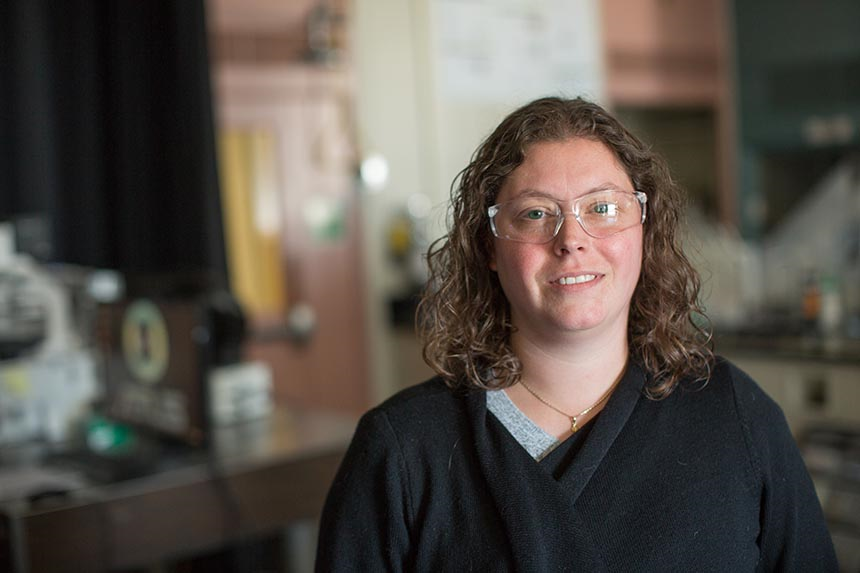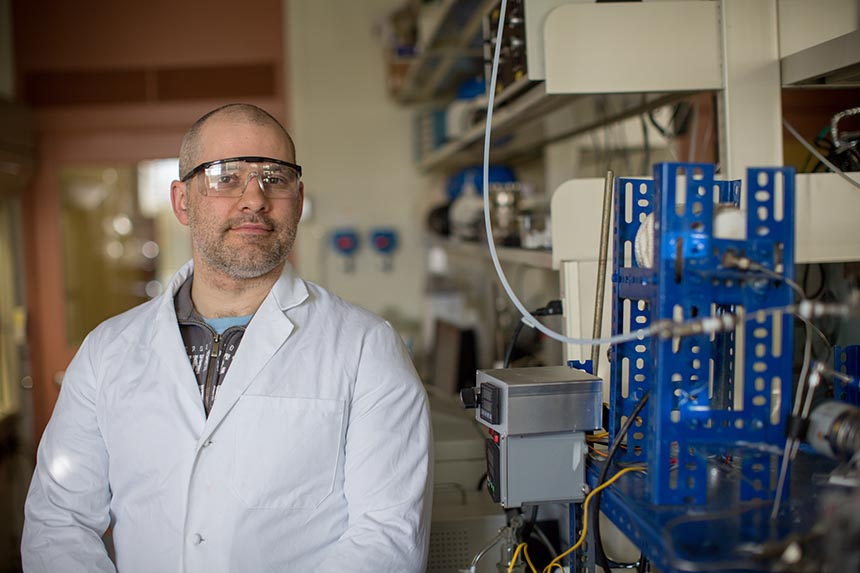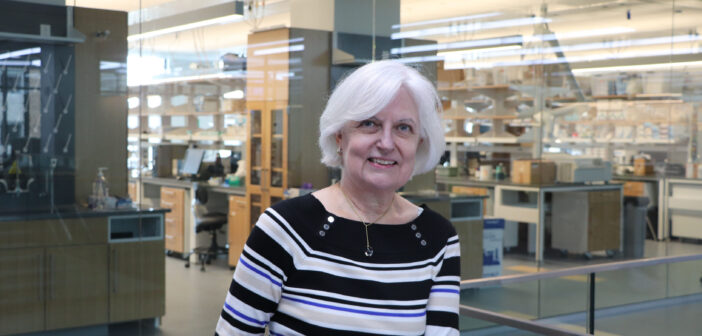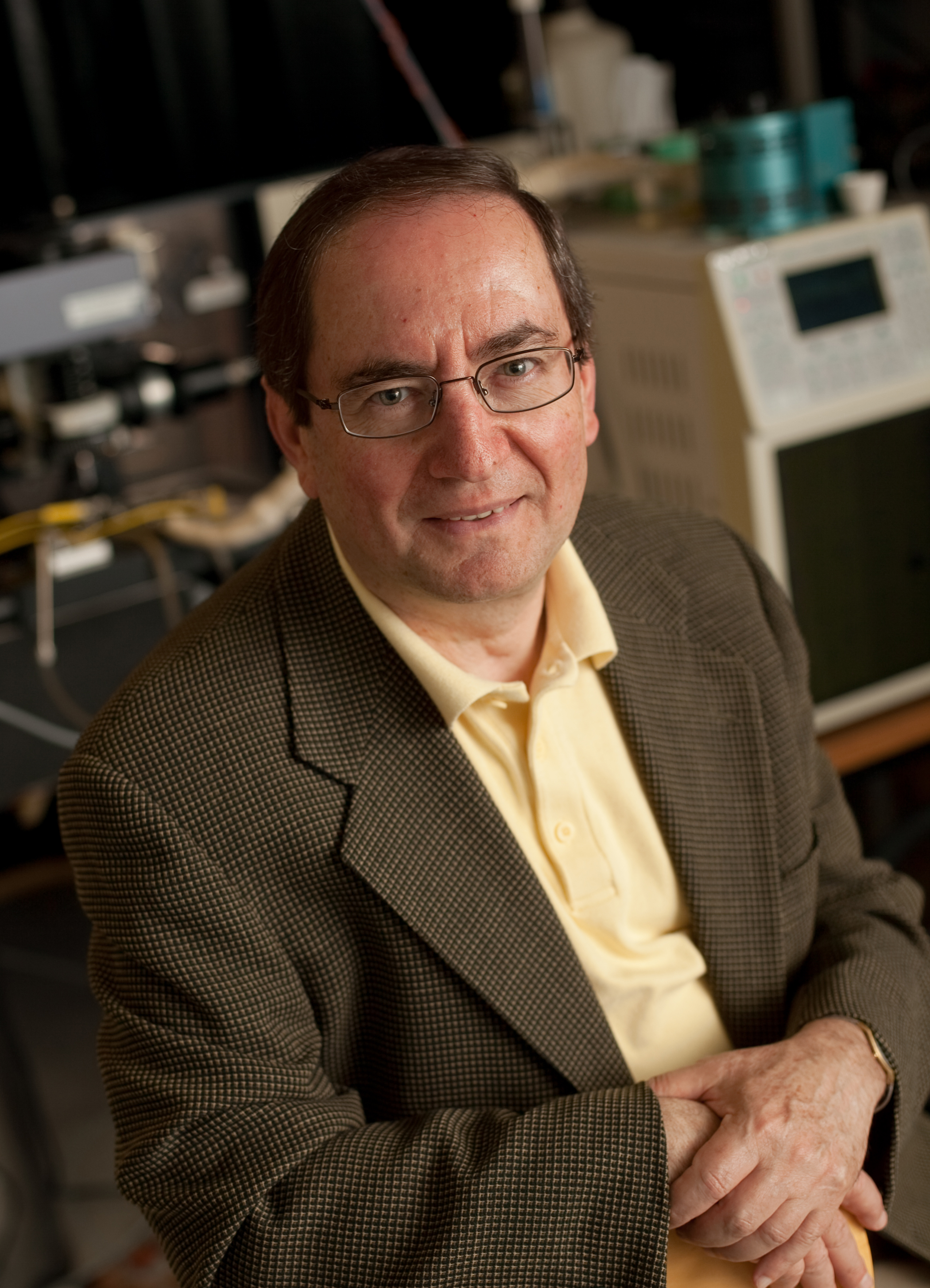Everyday faculty are engaging in research and scholarship across many disciplines. To earn grant funding is no small feat. Each scholarly discovery not only offers new perspectives to the research and educational missions of the ChBE department at Lehigh but is also a testament of quality innovation hard at work. “These are stellar results and the faculty need to be recognized for their accomplishments” says Steven McIntosh, Professor and Department Chair; Zisman Family Professor of Chemical and Biomolecular Engineering, Lehigh University.
R35-Maximizing Investigators' Research Award from the NIH National Institute of General Medical Sciences: (projected $1.87M/5 yrs to Lehigh)
The National Institutes of Health awards a $1.87M grant to Lehigh University's ChBE Professor Kelly Schultz. Schultz has been awarded an R35-Maximizing Investigators' Research Award from the NIH National Institute of General Medical Sciences titled "Characterizing the feedback loop between cells and the pericellular region during cell-material interactions". The proposed research program will focus on characterizing cell-material interactions during critical processes to enhance the design of materials that promote wound healing and tissue regeneration. The processes to be studied are: (1) cellular adhesion, (2) hMSC spreading and motility in response to scaffold viscoelasticity and (3) hMSC-material interactions in response to environmental signaling molecules. The proposed work will support the overarching goal of understanding the fundamentals of cell-material interactions and the influence on basic cellular processes which will be used in the design of new materials that can use their structure and properties to instruct cellular processes after implantation.
Georgia Institute of Technology’s Department of Energy’s Energy Frontier Research Center (EFRC): (projected $1M/4 yr to Lehigh)
Professors Jonas Baltrusaitis’, Israel E. Wachs’ and Srinivas Rangarajan’s proposal titled “Understanding and Controlling Accelerated and Gradual Evolution of Materials for Energy,” which is part of Georgia Institute of Technology’s Department of Energy’s Energy Frontier Research Center (EFRC), has been funded (Lehigh’s portion $1,000,000) by the Department of Energy (DOE) – Basic Energy Sciences (8/1/22-7/31/26). The research program focuses on the sustainable conversion of H 2 from water and hydrocarbons from CO 2 (by direct air capture) and H 2 via electrochemical catalysis and the effect of feed impurities on the catalytic performance. The new insights will aid in advancing the electrochemical production of sustainable energy fuels.
NSF Center for Integration of Modern Optoelectronic Materials on Demand (IMOD): (projected $750K/5 yr to Lehigh)
IMOD is an NSF Science and Technology Center (STC) whose mission is “to transform conventional and quantum optoelectronics through the development of atomically-precise semiconductor materials and additive manufacturing processes”. In her role as co-PI and Director for Integrative Partnerships, Elsa Reichmanis will build on her experience related to solution phase processing of materials to precisely position QDs and to integrate large-area QD and perovskite thin films in devices at low temperatures, on both rigid and flexible substrates. She will exploit her work on process-structure-property relationships of solution-processable films to translate our understanding of order and organization in QD metamolecules to printed materials that approach the ultimate performance. As Director for Integrative Partnerships, Reichmanis will work with IMOD partner institutions to establish knowledge transfer programs to prepare students to interact with industry, academia, and government partners, while encouraging entrepreneurship and spinoffs, thereby accelerating the pace at which NSF research has translational impact.
Center for Mesoscale Transport Properties (m2m): (projected $720K/4 yr to Lehigh)
The Center for Mesoscale Transport Properties is an Energy Frontier Research Center (EFRC) funded by the Department of Energy. The mission of m2m is “to understand and provide control of transport properties in complex battery systems with respect to multiple length scales, from molecular to mesoscale; to minimize heat and maximize work of electrical energy storage devices.” Professor Elsa Reichmanis's group will build on its expertise related to the design and development of advanced materials and processes to further their experimental research aimed at the development of organic/inorganic hybrid electrodes for high capacity Li-ion batteries. The approach will be highly integrated to establish a nano- through mesoscale view of the chemical and electronic processes that occur within high capacity active materials for use in advanced anodes and cathodes.
Department of Energy (DOE) – Basic Energy Sciences: (projected $650K/3 yr to Lehigh)
Professors Israel E. Wachs’ and Srinivas Rangarajan’s proposal titled “Tuning the Molecular Structures, Number of Active Sites and Turnover Frequencies for Olefin Metathesis by Heterogeneous Supported Molybdena Catalysts” has been funded ($650,000) by the Department of Energy (DOE) – Basic Energy Sciences (9/1/22-8/31/25). The current shortage of propylene has renewed interest in conversion of ethylene and 2-butene to propylene by heterogeneous olefin metathesis catalysts. The research will harness cutting-edge catalyst synthesis, characterization, kinetic and modeling studies at the molecular level that will guide the rational design of improved supported molybdena catalysts for olefin metathesis.
The National Science Foundation (NSF): (projected $400K/3 yr to Lehigh)
Professors Israel E. Wachs’ and Srinivas Rangarajan’s proposal titled “Molecular Structure Activity/Selectivity of Ethane Oxidative Dehydrogentaion to Ethylene by Bulk MoVNbTe Mixed Oxide Catalysts” has been funded ($400,000) by the National Science Foundation (1/1/23-12/31/25). High temperature steam cracking is the current method of producing ethylene from ethane, but is the most energy-intensive process in the petrochemical industry and results in significant process energy consumption and large amounts of greenhouse gas emissions. An alternative process is the oxidative dehydrogenation of ethane to ethylene that consumes significantly less energy (<89%), reduces environmental impacts , lowers ethylene production costs and fulfills several of the United Nation’s sustainable development goals. The research will examine the fundamentals of mixed oxide catalysts for the ethane dehydrogenation to ethylene. The new insights will guide the rational design of improved catalysts.





